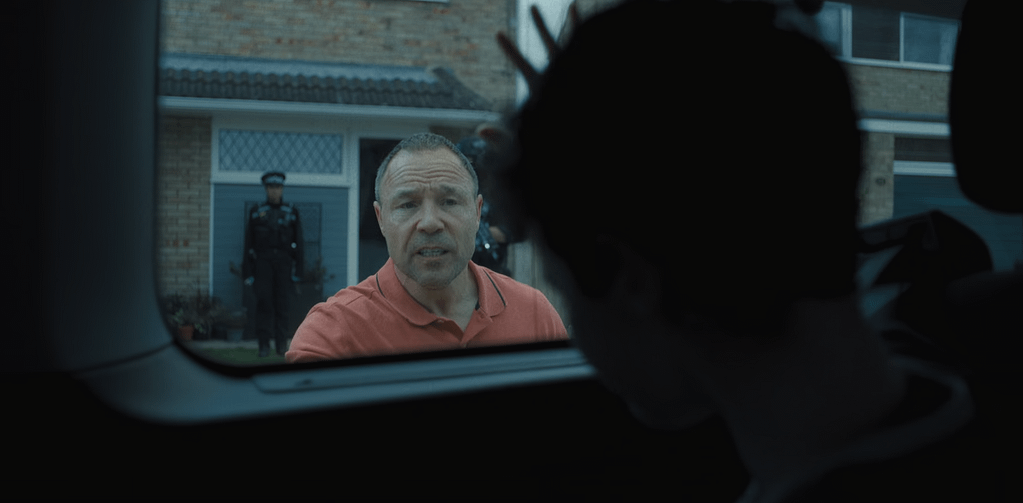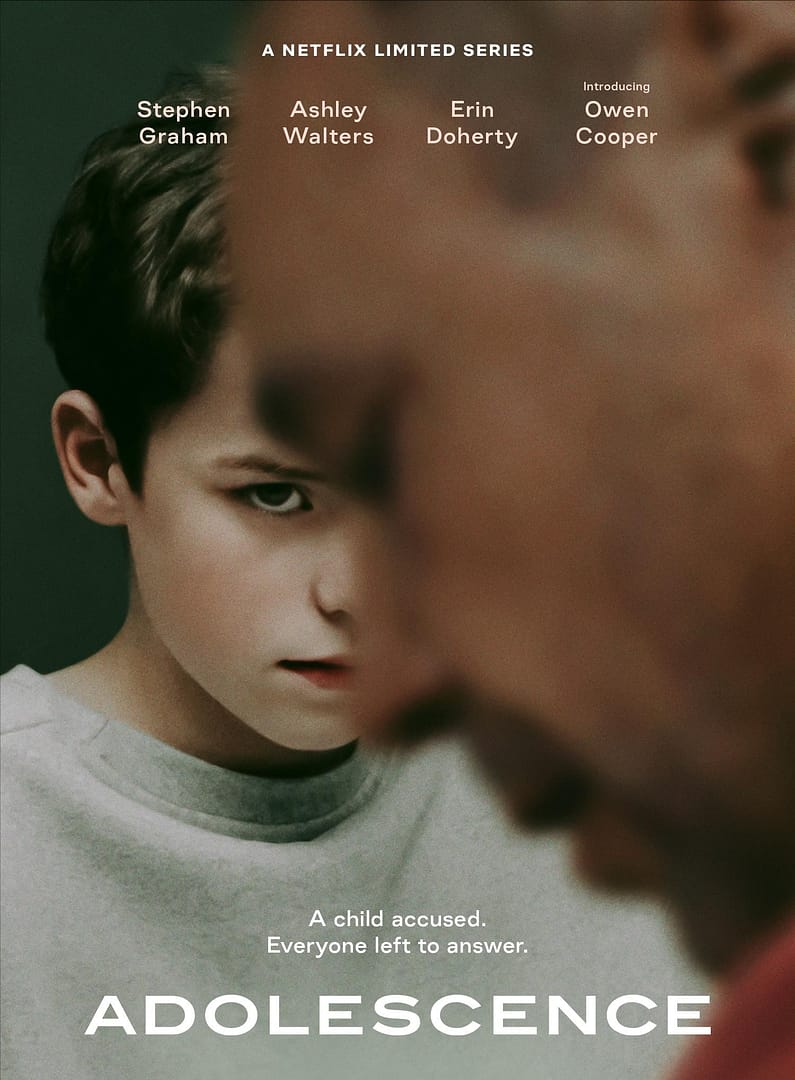TV Show Details
Title: Adolescence
Director: Philip Barantini
Main Cast: Owen Cooper, Stephen Graham, Ashley Walters, Christine Tremarco
Genre: Crime, Drama, Mystery, Thriller
MPA Rating: TV-MA
Original language: English
Episodes: 4
Runtime: 1h per episode
Released: March 2025
Where to Watch: Netflix
🎥 Synopsis: When a 13-year-old is accused of the murder of a classmate, his family, therapist and the detective in charge are all left asking what really happened.
A Chilling Look at Crime and Consequences
Adolescence is a four-part Netflix miniseries that explores the aftermath of a shocking crime committed by 13-year-old Jamie Miller. Arrested for the murder of his classmate, Katie Leonard, Jamie’s story unfolds in a way that feels both deeply personal and disturbingly detached. The series doesn’t just focus on the crime itself but on the environment that allowed it to happen, raising questions that don’t have easy answers.


The first episode immediately stands out, throwing viewers into the chaos of Jamie’s arrest. The single-take approach works brilliantly here, making the scene feel suffocating and real. The lack of cuts enhances the sense of helplessness, as if we’re trapped in the moment alongside his family. It’s an incredibly strong opening that sets the tone for what’s to come.

The third episode, featuring Jamie’s psychological evaluation, is another highlight. The slow, deliberate conversation between him and the assessor is gripping, as she carefully peels away his layers. Jamie’s outbursts are unsettling, but it’s the way he shifts between vulnerability and defiance that makes it so compelling. This episode doesn’t just confirm his capability—it forces us to confront the uncomfortable reality of who he really is.
While the one-take format adds authenticity, it occasionally works against the pacing. Certain moments, like Jamie’s transport to the police station, feel unnecessarily stretched, lingering on silence that doesn’t add much to the tension. A few well-placed cuts could have improved the flow without losing the raw, immersive feel.

The school’s role in the tragedy is another frustrating aspect. The system clearly failed, but it’s hard to pin down exactly where the blame lies. Did the teachers overlook something? Did his parents not notice the signs? Were his peers oblivious, or simply too distant to intervene? Kids like Jamie often keep to themselves, making it difficult to catch warning signals before it’s too late. The show doesn’t offer a clear answer, which makes it all the more unsettling.

Despite its strengths, this didn’t hit as hard as I expected. It’s thought-provoking, but there’s a certain emotional disconnect that keeps it from being truly devastating. Still, the final episode leaves an impact.
I truly felt for Jamie’s family. We don’t often hear about what it’s like for the families of convicts—how they suffer, not for the crime itself, but for being related to someone involved. The episode raises difficult questions: Should they move? Should they stay? How do they rebuild their lives? How do they endure the harassment? How should they cope? The show explores this with heartbreaking realism, making their struggle one of the most compelling aspects of the story. Watching Jamie’s family struggle to process what happened—failing, trying again, and failing once more—felt painfully real. The abrupt ending reinforces this uncertainty, cutting off at a moment that feels unfinished, yet fitting.

If you’re looking for a tense, thought-provoking drama that challenges perspectives on crime, responsibility, and family, this is well worth watching.

Leave a Reply